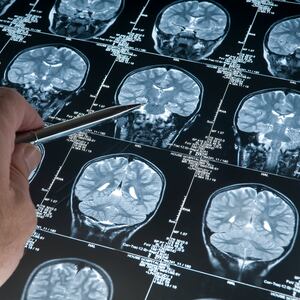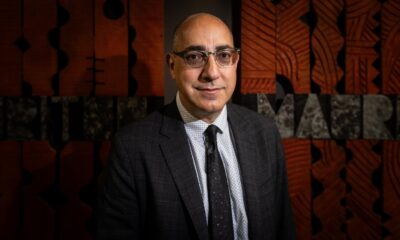Health
Neurologists Explore New Tools for Enhanced Brain Recovery

Advancements in neurological treatment are underway as researchers investigate three psychiatric tools that may significantly enhance the brain’s ability to recover after neurological events such as strokes. Dr. Sean Dukelow, a neurologist at Foothills Hospital in Calgary, Canada, has dedicated the past 15 years to treating stroke patients, primarily relying on neurorehabilitation techniques. These methods involve repetitive exercises in speech, physical, and occupational therapy, which capitalize on the brain’s natural plasticity to promote neuron growth and establish new connections.
Currently, Dr. Dukelow’s approach emphasizes the importance of repetition in recovery. “There’s going to be a lot of repetition,” he informs his patients, underscoring the limited options available beyond conventional therapies. The existing treatments for long-term recovery are largely restricted to invasive procedures, such as devices that stimulate the vagus nerve or spinal cord. However, a sense of urgency is emerging among neurologists to discover novel substances or devices that could facilitate the healing process more effectively.
Innovative Approaches to Brain Recovery
Dr. Dukelow notes that these potential breakthroughs could mean the difference between regaining mobility and independence or facing a life in a nursing home. Among the promising contenders are transcranial magnetic stimulation, antidepressant medications, and psychedelics. These therapies are traditionally associated with treating mental health conditions such as depression, post-traumatic stress disorder (PTSD), and obsessive-compulsive disorder.
The underlying hypothesis is that these treatments might not only alter maladaptive thought patterns but also engage the brain’s memory and learning circuits, which are believed to play a crucial role in stroke recovery. Researchers are optimistic that these therapies could enable the brain to reroute functions around damaged neurons, thereby restoring essential abilities such as walking, speaking, and remembering.
Scientific Insights and Future Directions
While the idea of applying psychiatric treatments to neurological rehabilitation is innovative, it raises significant questions about efficacy and safety. Experts are working diligently to understand whether therapies designed to reset disordered brain circuits can also repair damaged brain regions.
As research continues, the potential for these psychiatric tools to act as a “turbo boost” for brain recovery remains an exciting prospect. The scientific community is closely monitoring these developments, with the hope that they will lead to new, effective interventions for patients recovering from severe neurological events.
Dr. Dukelow’s insights reflect a broader shift in the understanding of brain recovery. The intersection of psychiatry and neurology could pave the way for transformative therapies that not only restore function but also enhance the quality of life for countless individuals facing the aftermath of strokes and other neurological catastrophes.
-

 Sports2 months ago
Sports2 months agoNetball New Zealand Stands Down Dame Noeline Taurua for Series
-

 Entertainment2 months ago
Entertainment2 months agoTributes Pour In for Lachlan Rofe, Reality Star, Dead at 47
-

 Entertainment3 weeks ago
Entertainment3 weeks agoNew ‘Maverick’ Chaser Joins Beat the Chasers Season Finale
-

 Sports2 months ago
Sports2 months agoSilver Ferns Legend Laura Langman Criticizes Team’s Attitude
-

 Sports1 day ago
Sports1 day agoEli Katoa Rushed to Hospital After Sideline Incident During Match
-

 Politics1 month ago
Politics1 month agoNetball NZ Calls for Respect Amid Dame Taurua’s Standoff
-

 Entertainment2 months ago
Entertainment2 months agoKhloe Kardashian Embraces Innovative Stem Cell Therapy in Mexico
-

 World3 months ago
World3 months agoPolice Arrest Multiple Individuals During Funeral for Zain Taikato-Fox
-

 Sports3 months ago
Sports3 months agoGaël Monfils Set to Defend ASB Classic Title in January 2026
-

 Entertainment1 month ago
Entertainment1 month agoTyson Fury’s Daughter Venezuela Gets Engaged at Birthday Bash
-

 Sports1 month ago
Sports1 month agoHeather McMahan Steps Down as Ryder Cup Host After Controversy
-

 World2 weeks ago
World2 weeks agoSevere Winds Hit New Zealand, Over 100 Flights Canceled





















